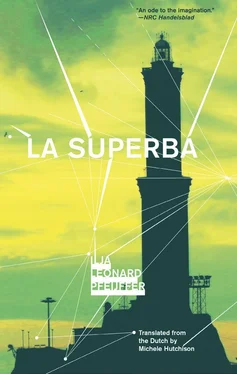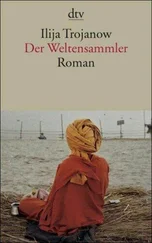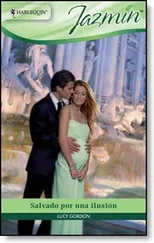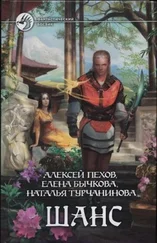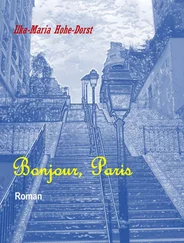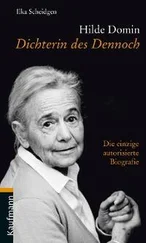But the biggest thing is that I’d be forced to seriously soften the truth, because if I told it exactly as it happened, the way I’m telling it to you, everyone would think I’d made it up. That’s often the problem with the truth: it’s completely unbelievable. But it seems that that problem keeps cropping up continuously here. This medieval labyrinth appears to be populated exclusively by unbelievable novelistic characters of ever-increasing picturesqueness.
For example, how could I ever introduce Alfonso Gioia into my novel, Monia’s acquaintance, with whom I have a meeting due to his putative excellent contacts at City Hall? He was a skinny young man, with a boyish, if not to say almost childish, appearance, with short, black, lank hair and small round glasses. That’s all fine, until it dawns on you who he looks like. If you saw him in real life, or if I sent you a picture of him, you’d see it at once: Harry Potter. He’s the spitting image of Harry Potter. That’s fine, you might say. Alright. But he is him, too. Not because his nickname is the Harry Potter of Genoa, that doesn’t say much, that could be purely based on his appearance, too. No, it’s much worse. He is a wizard. Not a magician, but a wizard. That’s his job. I’m not lying. He told me about it at great length. His own words were that he has an enormous collection of magic objects and books of spells. And he told me at great length how just the night before he’d been to an Autogrill on the motorway toward Savona to exorcise the spirits that had been haunting the place for some time. He’d managed it. He’d solved the problem. The management of the Autogrill chain had paid him handsomely for the service. And that was only fair, he said, because it had taken him a lifetime of study. And he had to live off of it — this was his profession.
He also told me he had a special gift of being able to get in touch with the spirits of dead people, or those people floating on the boundary of life and death. Not so long ago he’d had a good conversation with Michael Jackson on his deathbed. I wondered how that conversation had gone because as far as I knew, Michael Jackson didn’t speak any Italian when he was alive, and Alfonso Gioia doesn’t speak a word of English. I checked that by making a brief, fake telephone call in his presence, in which I gradually introduced funny jokes about him. He didn’t flinch.
And there were more things I was curious about. What had possessed Monia to put me in touch with this clown? How the hell was he going to be able to help us? I asked about his so-called excellent personal contacts with key figures in local politics. He said that, without wanting to be immodest, he was, thanks to all his contacts, one of the most important people in Genoa. He had personally assisted pretty nearly all the politicians with any clout in their election campaigns, whether they were left, right, or in the middle. He was a person who could deliver votes. He showed me a fat folder bursting with papers covered in names, addresses, phone numbers, and e-mail addresses. “This is the membership list of the paintball club I’m president of. That’s more than three thousand votes. That’s how it works in Italy. Almost every politician owes me a big favor.”
But perhaps the most important thing, as he told it, was that he had an important role in the local Freemason’s lodge. Naturally, he couldn’t say much about it, but in strict confidence, he could let slip that he was the Honorable Grand Master himself. “And anyone who knows anything about the political situation in Italy knows that nothing gets done without the Freemasons’ approval. We run this country.”
I explained the situation regarding the theater to him and asked whether he would be able to get hold of the agreement between the current owners and the council.
“That’s no problem. I can give you that contract tomorrow.”
“I’d be very grateful. Thank you. We’ll see each other again tomorrow, then.”
“But then you’d owe me a favor in return.”
“Tell me what I can do.”
“You’re a writer, aren’t you? And you write for various foreign papers, don’t you? I’ll make sure you get that contract on the condition that you publish the following information abroad.”
He handed me a thick document he’d put together himself. I began to read it. It slowly dawned on me what I was holding, and I could hardly believe my eyes. The document aimed to prove that he was the real Harry Potter. The writer J.K. Rowling had supposedly based her world-famous character upon him. The evidence, as one might expect, was very flimsy. In 1991, when he was fourteen, he had been a guest on an Italian television show I fatti vostri as the youngest wizard in Italy. That must have been the exact moment Rowling had come up with the idea for her series. The first volume was published six years later. And it wasn’t just that he looked like the eponymous hero. No, she had modeled Harry on Alfonso. The similarities in appearance were too staggering to be coincidental. And there were other indications. On the show, Alfonso said that he’d been a student of a man with a long, white beard. And the name of one of the four founders of the school Harry Potter went to was Godric Gryffindor, which means “gilded griffin,” a central element in Genoa’s coat of arms. That was all the proof he needed. It could no longer be coincidence.
I promised him I would inform the world of his shocking discovery. First, I was keen to see whether he could actually get hold of that contract. I no longer had much faith in that. He was a fool. To be honest, it would surprise me if I ever saw him again. And perhaps it was better that way, too.
But he did actually turn up again the next day for our appointment. And to my astonishment, he had a copy of the contract. I gave it a fleeting glance, but there was no shadow of a doubt. He’d delivered the goods. This was the right document. This was the very document I’d been fruitlessly chasing after.
So that same day I wrote a short press release in which I did my utmost best to make something of his absurd claims. I e-mailed it to one of the papers in my home country that I regularly contributed to.
The next day I got a phone call from the editor in chief. “What the hell’s this, Ilja?”
“I know, Rob. I’m sorry. It’s a long story. But please just place it as a favor to me. It’s important. If necessary you can put it in an inconspicuous corner somewhere. Please do, in fact. And I don’t have to be paid for it. And I’ll write my next piece for you for free, too. Just place it, please. And can you send me a copy of the paper?”
A week later the paper lay in my postbox. My piece had been neither cut nor edited. Alfonso Gioia was satisfied. We were even.
22.
“But what it finally comes down to is that not one goddamn thing is true.”
Succinctly put, that was exactly my conclusion, too.
“Naturally, I knew the whole time that something wasn’t right, but now we’ve got it in black and white. Do you understand now why I kept on pressing for us to get this document? He was lying through his teeth, Pierluigi Parodi. With his cigars. It was all lies. And I mean all of it. What do you think, Ilja? Don’t you see now that I was right?”
“Almost everything, Walter. The only thing that’s true is the low rent paid to the council.”
“Yes, but that means there’s hard evidence that the theater belongs to the council and that he’s trying to sell something that’s not his.”
“He’s selling a license to be able to rent it at a low price.”
“The nine-year license.”
“Seven of which have been used up. And it won’t be automatically renewed, not in the slightest. It says very clearly that the council is legally bound to put the new concession out to open tender.”
Читать дальше
